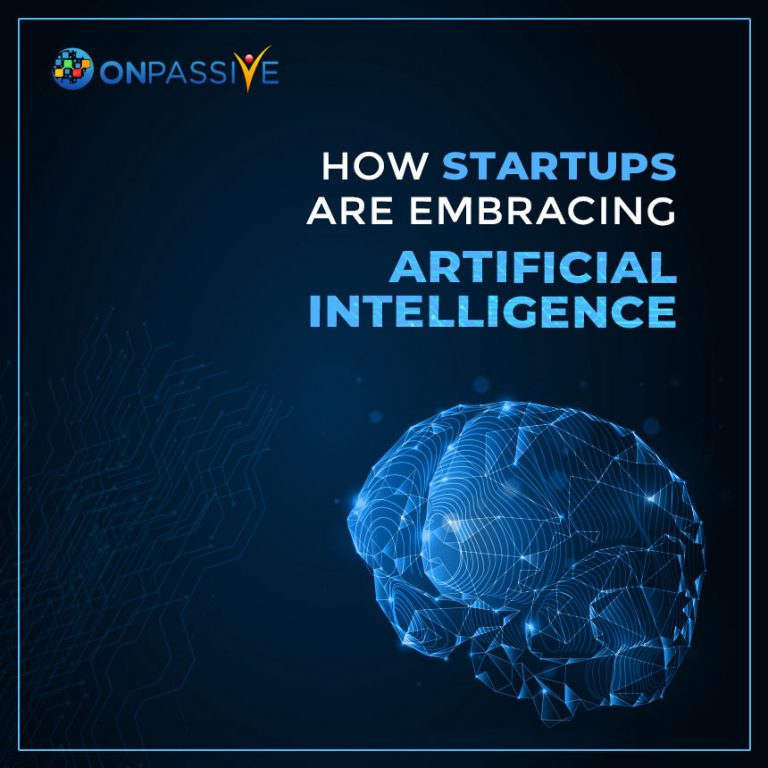
Despite nationwide venture funding that hits a multiyear low, a venture capital deployed to use artificial intelligence (AI) startups has reached a remarkable high. This rapid rise has swept up startups and enterprises alike. The acquisition cements experts that have uncertainties of Ford’s coming foray into self-driving technology.
Other startups are so many is a cutting-edge, that entrepreneurs need a best of guide that is betting heavily on bot platforms.
Sixty-eight percentage of marketing executives report using AI in their function. For a practice, that only went mainstream and barely existed four years ago, that is a reasonable adoption rate.
How, regardless of the platform you choose AI?
Over the last few years, there are four strategic considerations stand out to leverage AI in your startups:
Why?
Since you have to know your audience, this is true for entrepreneurs. Before you broadcast your message, definitely you need to know who you are trying to reach.
Node is an account-based intelligence startup which uses natural language processing for teaching a computer to understand how we humans speak and write to develop customer profiles.
Once you have comprehensive customer data, the node uses data crawlers to scrape information from social media, news sites, and more than pair’s machine learning and natural language processing (NLP) models to extract the unstructured data.
Senator’s segment constituents into demographic groups the same way, the node uses cluster analysis to sort client’s customers into like cohorts.
Understand How People Uses Your Product:
If you forgot to tag your neighbour at last week’s house party; Facebook was no doubt to remind your mistake.
Analyzing how does Facebook know which of your friends left untagged?
It is the AI technique called convolutional neural networks.
Convolutional neural networks which loosely models how the brain’s visual cortex interacts with the eyes and work by separating the image into tiny portions before running each of those specks through a multilayered filter. It then perceives where speck overlaps with the other parts of the image.
Different ways exist to apply technology, but retail businesses can have a growing impact on AI, which starts with the image classification.
Use a convolutional neural network to break down photos of your products posted online. This model can identify customer segments that frequently use your product, where they are using it and whether they commonly pair with the other products of yours.
Automated image analysis can show how your products fit into customer’s lives, allowing you to tailor your marketing materials to fit.
Get Inside the User’s Experience
Fortunately, AI can take the emotional temperature with thousands of customers at once.
Dumbstruck, a video-testing and analytics startup that has added natural language processing to its emotional analytics stack. It allows providing insights into viewers’ reactions to the media.
Provide Affordable, Always-on Support
Customer service should be, according to consumers, the department that never sleeps. Statistically, 50.6 per cent to be precise, believe a business should be available 24/7 to answer their every question and concern.
When asked whether how to help businesses in artificial intelligence should be available via a messaging app, then ‘yes’ votes jump to nearly two in three. The well-built bot offers cost-effective and 24/7 customer service.
Ideally, there are hundreds and thousands of example conversations, but, you can get started with a human-Chabot hybrid. With this kind of approach, the bot answers run-of-the-mill questions, while a human takes over for the more complex ones. Then, as data build and model matures, you can phase in full automation.
Artificial Intelligence impacts on Startups:
Startups within no time will gain a competitive edge in capturing the AI market. Larger enterprises will provide infrastructure to the startups for building innovative and cutting-edge services. It is somewhat identical to the business model which followed when the cable technology introduced.
Startups leveraging AI technology for different industry verticals, including agriculture, and manufacturing or insurance are bound to be successful. Startups can empower the well-established insurance firms like State Farm, Allstate, and Farmers with this innovative technology, and enabling all of them to become more proactive in policy planning. For example, a new AI insurance underwriter will help to forecast natural disasters and accidents to adjust premiums.
The predictive and decision-making capabilities are vast than just a novel technology. You can also manage the large food supply chains with the help of AI without any hassles. Startups could also develop end-to-end farming solutions with AI analytics for reducing food waste.
Ground-level AI sentiment of the startups:
Regardless of which industry you are operating, AI will impact your world in some type. Look into what is present and how you can use it to gain a competitive edge.
The benefits of AI for startups are:
- Endless
- Enterprises will become efficient
- Intelligent
- Cost-effective.
Undoubtedly, the Artificial Intelligence (AI) revolution will advance to a point where it will offer real-world benefits to every business, large and small.



Patricio Rivers
3 years ago
Brendon Mawalu
3 years ago
Peggie McDuffey
3 years ago